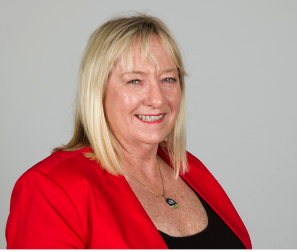The first in a series of candidate information nights organised by Central Coast Council for residents thinking of standing in the 2024 local government elections will be held on October 18.
Administrator Rik Hart says the sessions will outline what good governance is and how the Local Government Act outlines the role of a councillor.
Being a councillor is not an easy job.
Having a full-time job outside of being a councillor puts a strain on your time, as does balancing the work with family time.
Simply reading council papers once a month takes a good few hours; sometimes the attachments run into hundreds of pages.
Councillors need to find time to attend not only Council meetings but briefings, site visits and meetings with local community and business groups as well as fielding countless phone conversations.
Coast Community News asked former councillor Jillian Hogan, who is Services Manager at The Epicentre, the Neighbourhood Centre at San Remo, to share her thoughts on the qualities needed for the role.
Her first tip was to “understand yourself and what you believe in so that you can be consistent in your decision making and people will know what you stand for”.
“If your beliefs aren’t in line with residents’ views, don’t run,” she said.
“How do you know what residents’ views are?
“Attend countless residents’ meetings, answer calls, contact people and listen; it takes effort, time and action.
“Don’t stand if you have a personal agenda or you have a negative agenda.
“You need to want to make positive changes for residents and that needs to be driven by the community.
“It’s too easy to rev-up a community to picket and shout; but to make something positive happen, takes more work over a longer period.
“Politics is more than just red, green and blue.
“Politics exists in every working environment.
“All sorts of people, including independent candidates, drive their own political agenda.
“There is no room for misogyny, sexism, racism or homophobia as a councillor.
“You will be interacting with all types of inclusive groups that make-up modern Australia so you need to be a good role model.
“You need to be able to manage personal attacks from all directions; from the gallery, in letters and emails, at public meetings as well as social media.
“Abuse comes in all forms from all sorts of people and often from people you’d least expect.
“You need to be resilient and read the code of conduct.
“Acknowledge that you can’t work alone.
“There are plenty of good, intelligent people with extensive knowledge and history trying to make things happen or not happen.
“You will need to facilitate collaboration between people or groups and come to some sort of consensus with residents, staff and councillors who may all want something different, which isn’t easy”.
Hogan said that although understanding the financial reports was important, it was not the only skill required.
“You also need leadership, conflict resolution, problem solving, communication and listening skills,” she said.
“You also need to be proficient in understanding policy, laws, acts, reports as well as building proactive relationships with the residents and staff.
“It’s a very demanding job and hard to juggle full-time work with councillor responsibilities.

“If you don’t have flexibility with your substantive job, you need to consider how you would juggle both.
“Being a councillor in many ways is a full-time job.
“You need to be a tolerant, open-minded and gracious person.
“Be open to engaging with our most vulnerable community members.”
Hogan said it was not easy to “fix everything”.
“Often the only time you get traction publicly is when something simple is taken out of context and highlighted in the media,” she said.
“But it’s not that stuff that makes things happen.
“It’s the work with residents that actually results in positive outcomes.
“It means meetings and meetings and more meetings with all parties.
“It takes energy and, above all, respectful dialogue and especially during debate.”
Hogan said an ideal councillor would be of working age but only work part-time, have a genuine interest in people and their community, understand diversity, have a degree in any discipline, know what they stood for, be ready to listen and take action, be honest and carry out their duties with utmost integrity.
They would also need to be able to make decisions and have a willingness to make a difference, she said.
If you think you might fit the bill, the first information session will be held at the Council offices in Hely St, Wyong, from 6pm on October 18.
Merilyn Vale



